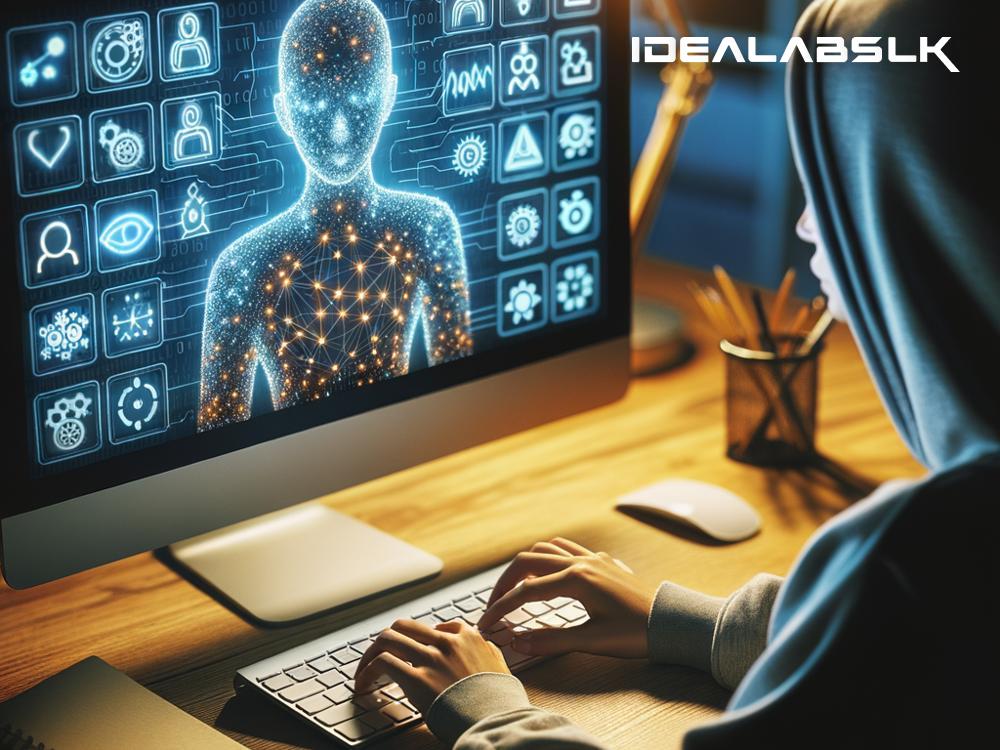Smart Keyboards: Revolutionizing Typing with AI Understanding of User Patterns
In today's digital world, we're constantly looking for ways to make our interaction with devices faster, more intuitive, and ultimately more efficient. One of the devices that bridge our thoughts with the digital realm is the humble keyboard, a tool that has undergone its own revolution, thanks in part to the advancements in artificial intelligence (AI). Smart keyboards, powered by AI, are changing the way we type by learning our unique typing patterns. This blog delves into how AI in smart keyboards is making typing a more personalized experience.
First off, let's talk about what a 'smart keyboard' actually is. Unlike traditional keyboards that simply record and transmit your keystrokes to a computer or mobile device, smart keyboards are more sophisticated. They employ AI algorithms to understand, predict, and adapt to your typing habits over time. This advanced technology doesn't just correct your typos; it learns from them, making educated predictions about what you're going to type next, which can dramatically speed up your typing speed and accuracy.
So, how does AI manage this feat? At the heart of a smart keyboard's functionality is machine learning, a subset of AI that focuses on the development of systems that can learn from and make decisions based on data. When you use a smart keyboard, it collects data about how you type. This includes the words you use most frequently, your common typing errors, the emojis you prefer, and even the way you swipe or tap keys on touchscreen keyboards. Over time, the keyboard's AI processes this information, identifies patterns in your typing behavior, and adjusts its predictions and suggestions to better align with your personal writing style.
One of the most visible benefits of this technology is predictive text. As you type, the keyboard suggests the next word you might want to write. These suggestions are not just based on general language patterns but are tailored to your own language use and preferences. For example, if you often write emails that start with "Dear," the keyboard will learn to suggest "Dear" as soon as you type "D" at the beginning of an email. This saves time and makes digital communication smoother and faster.
AI-powered keyboards also excel at error correction. Everyone makes typos, but smart keyboards learn your common mistakes and can automatically correct them. Even more impressively, they can adapt to correct new types of mistakes as they occur, helping to improve your typing accuracy over time.
The customization possibilities with AI in smart keyboards are vast. Some smart keyboards allow users to customize their experience further by letting them adjust the level of predictive text and autocorrect features. Others adapt to your unique vocabulary, learning specialized terms or slang that you often use, ensuring these words are not mistakenly 'corrected' to something else. This level of personalization makes typing a more seamless and less frustrating experience.
Privacy is a valid concern whenever data collection is involved, and smart keyboard developers are aware of this. Most smart keyboards are designed to process data on the device itself, rather than sending information to a server. This means your typing data, from your personal lexicon to your typos, stays on your device, protecting your privacy.
Looking ahead, the future of AI in smart keyboards is bright and full of potential. Advances in AI and machine learning could enable even more nuanced understanding of user intent, allowing keyboards to offer more sophisticated forms of assistance. For instance, imagine a smart keyboard that not only predicts your next word but can also suggest whole responses based on the context of the conversation. This level of predictive typing could revolutionize how we interact with digital devices, making communication faster, easier, and more intuitive than ever before.
In conclusion, AI-powered smart keyboards are a significant leap forward in how we interact with technology. By learning and adapting to our individual typing patterns, they offer a personalized typing experience that boosts efficiency, reduces errors, and ultimately makes our digital interactions more enjoyable. As AI technology continues to evolve, the potential for even smarter keyboards is unlimited, opening up new possibilities for how we communicate in a digital age. So, the next time you send a quick email or dash off a text message, consider the sophisticated technology under your fingertips, quietly learning from every keystroke to make your digital life a little bit easier.

